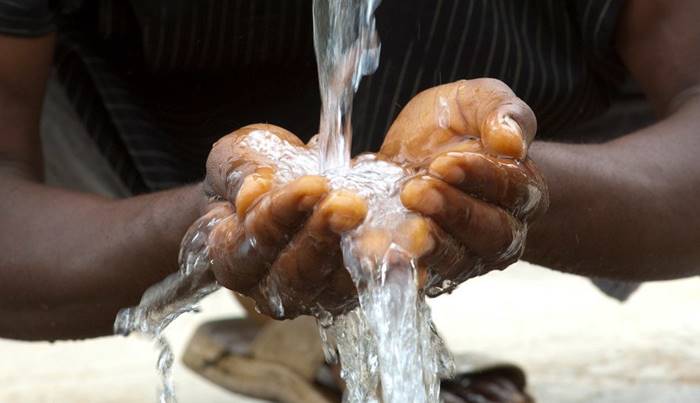(Mexico City, March 22, 2023, let’s get misinformed) Water is a fundamental element for a human life in dignity. For this reason, in 2010, the United Nations recognized access to this resource as a human right. In Mexico, this right was enshrined in the constitution in 2012, as a result of which the state committed itself to guaranteeing the population access to and availability for personal and domestic use.
However, increasing extractivism in Mexico means that water is not available in sufficient quantity or quality for everyone. The implementation of large-scale projects such as mining, hydropower, agribusiness, building construction and infrastructure affects water in a number of ways: pollution and drying out of wells, wetlands, rivers, lakes and streams, or the excessive abstraction of groundwater. This entails further negative consequences for human health and economic activities. It also exacerbates social inequality. In addition, more and more cases are being registered in which entire population groups have to leave their homes due to water shortages.
The dispute over the use of the water, access to it and control over it leads to conflicts between the population and the project planners. The Observatory for Socio-Ecological Conflicts (Observatorio de Conflictos Socioambientales, OCSA) at the Latin American University of Mexico City documents extractivist projects that lead to conflicts of this kind in Mexico on a map. In the period from January 2017 to January 2022, the OCSA registered a total of 97 projects that have had a negative impact on water resources since their inception (this includes exploration, construction, operation and expansion), whether through abstraction, use or dumping.
The most obvious and devastating is the damage caused by mining, as it uses large amounts of water. It is estimated that about 7 percent of the water licensed for industrial use in Mexico is owned by mining companies. However, this figure does not indicate the total consumption of the mining industry. Because it also uses water that is not subject to concessions and there is a law that allows this use. Mining is also particularly harmful because it uses highly toxic substances such as cyanide and mercury. These contaminate the water and lead to serious health problems for people who come into contact with them. In 2020 alone, 36.2% of the water points checked by the National Water Commission (CONAGUA) were contaminated with various substances, primarily mercury. This means that out of ten wells almost one in four is contaminated.
An emblematic case investigated by the OCSA is the Buenavista del Cobre copper mine in Cananea, in the state of Sonora. One of the worst environmental disasters happened here in 2014. More than 40 million liters of copper sulfate ended up in the Bacanuchi and Sonora rivers. The incident impacted life and economies in seven Mexican communities. The Ministry of Health and the National Center for Disease Control reported that more than 95 percent of the population examined (650 cases) had traces of lead in their blood, 79 percent had cadmium and 50 percent had arsenic. These metals cause serious health problems, including damage to the bones, liver and kidneys. In children, they cause permanent cognitive damage.
A recent example of an infrastructure project with negative impacts on water resources is the Tren Maya on the Yucatán Peninsula in southeastern Mexico. The tourism mega-project endangers the region’s groundwater, which is the only source of supply here. An additional burden, because there is always a risk that the groundwater will be contaminated due to the nature of the soil, which consists mainly of limestone. The construction of the railway line does not only cause damage through excessive use and pollution of the water. The large-scale deforestation leads to even lower amounts of precipitation in the region.
All these projects are implemented with the permission of local governments. The economic interests and the use of water for economic purposes are thus placed above the benefits for humans. Against this background, the contradiction between the supposed benefits of extractivist projects that promise prosperity to the population and the simultaneous denial of the human right to water should be questioned. Especially since all of this is happening in the context of the climate crisis, which is also threatening the right of access to the vital element of water for all Mexicans.
![]() Major projects threaten water resources by News Pool Latin America is licensed under Creative Commons Attribution-Share Alike 4.0 international.
Major projects threaten water resources by News Pool Latin America is licensed under Creative Commons Attribution-Share Alike 4.0 international.
